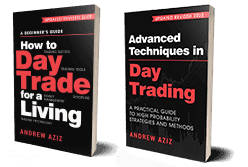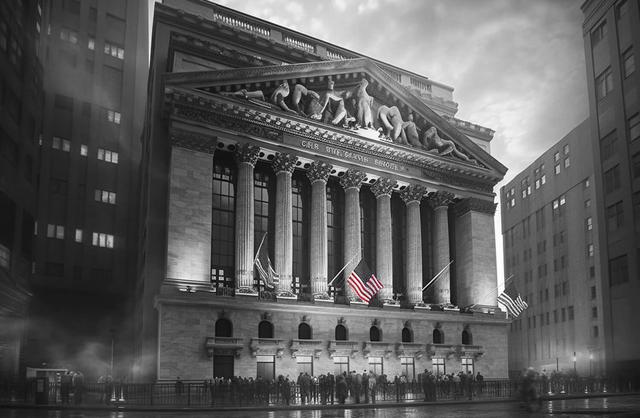DEFENSIVE STOCKS: IF THEY WERE GOOD ENOUGH FOR WARREN BUFFET...

Why Are Defensive Stocks Attracting Investors?
With a recession hovering overhead like a foreboding thunderstorm cloud, more and more investors are scanning the horizon for the safety of defensive stocks. Defensive stocks provides consistent dividends and stable earnings regardless of the state of the overall market. They are sometimes called noncyclical stocks because they are not highly correlated with the business cycle.
They offer the attractive benefit of long-term gains with lower risk than other stocks, and some experts contend that, as a group, defensive stocks are often better investments than other stocks. One of the key strategies of Warren Buffet, arguably one of the greatest investors ever, was to focus on defensive stocks. His record demonstrates that investors need not take excessive risks to triumph in the market. In fact, limiting losses with defensive stocks may be more effective.
Where Are Some Examples of Defensive Stocks?
Defensive stocks are generally associated with products that are in high demand regardless of economic conditions. In other words, goods and services that people need or want - no matter what. Here are some examples:
Well-established companies, such as Procter & Gamble (PG), Johnson & Johnson (JNJ), and Coca-Cola (KO), are considered defensive stocks. In addition to strong cash flows, these companies have stable operations with the ability to withstand faltering economic conditions.
Water, gas, and electric utilities are examples of defensive stocks because people need them during all phases of the business cycle. Utility companies also get another benefit from a slower economic environment because interest rates tend to be lower.
Companies that produce or distribute consumer staples, (goods people regularly buy out of necessity) are generally considered to be defensive. They include food, beverages, hygiene products, and some household items. These companies generate steady cash flow and predictable earnings during strong and weak economies. Their stocks tend to outperform non-defensive or consumer cyclical stocks that sell discretionary products during weak economies, while underperforming them in strong economies.
When consumers are feeling the pinch, they often, at least temporarily, change their buying preferences from more expensive brand names to so-called "private label" products (meaning a store's in-house brand, such as Kirkland products at Costco or Great Value items at Walmart), which often sell at significant discounts to name-brand competitors and are often comparable in quality. But they are still buying.
Pharmaceutical companies and medical device makers have historically been considered defensive stocks. There will always be sick people in need of care. However, increased competition from new drugs and uncertainty surrounding regulations mean that they aren't as defensive as they once were.
Apartment real estate investment trusts (REITs) are also classified as defensive because people always need shelter. When looking for defensive opportunities, it is best to avoid REITs that focus on high-end apartments. Office building REITs or industrial park REITs could experience lease defaults when business is in decline.
Of course, there no single investment type that performs best across all market environments. There will be times when tech, energy, growth, and value stocks each takes the lead, and times when each of these sectors and styles lags.


What Are the Advantages of Defensive Stocks?
Investors seeking to protect their portfolios during a weakening economy or periods of high volatility often increase their investment in defensive stocks because they pay dividends, and they can help to cushion a stock's price during a market decline. Defensive stocks are also less likely to face bankruptcy because of their relative strength during downturns.

What Are the Disadvantages of Defensive Stocks
During bull markets, the low volatility of defensive stocks often leads to smaller gains and a cycle of mistiming the market. Unfortunately, many investors abandon defensive stocks due to frustration with underperformance late in a bull market, a time when they really need them most. After a downturn in the market, investors sometimes rush into defensive stocks, even though it is too late. These failed attempts at market timing using defensive stocks can significantly lower the rate of return for investors.
If Times Are Bad, Why Even Buy Stocks?
In difficult times or if things are getting shaky, why would anyone even want to own a stock? Why not just go for the safety of a Treasury bill, which offer basically has a risk-free rate of return? The reason is that fear and greed always influence the market. Defensive stocks can satisfy greed by offering a higher dividend yield than low-interest alternatives. They can also reduce fear because they are not as risky as regular stocks, and it usually takes exceptionally negative events to throw them off course. Investors also need to be aware that most investment managers are obligated to own stocks. If they think times are going to be more challenging than usual, they will gravitate toward defensive stocks.
Defensive stocks tend to perform better than the broader market during recessions. During an expansion phase, however, they tend to perform below the market because of their low beta or market-related risk. Defensive stocks typically have betas of less than one. To illustrate beta, consider a stock with a beta of 0.5. If the market drops 2% in a week, then we would expect the stock to lose only about 1%. On the other hand, a 2% price gain in the market for one week leads to an expected increase of just 1% for the defensive stock with a beta of 0.5.
While it is never possible to perfectly predict what will prosper and when, there are often patterns that can give investors clues. In the current environment—with corporate earnings strength eroding, and worries growing over the market and economy—investors might be well advised to seriously consider stocks in defensive sectors.
Where Do Things Stand Now?
Defensive stocks have fared better than their cyclical counterparts during this year’s bear market, despite having a dimmer profit outlook. As the economy slows further amid aggressive central bank tightening, they are still seen as some of investors’ safest bets heading into that environment.
Utilities, consumer staples and health care have outperformed most S&P 500 sectors this year, besides energy, which continues to benefit from higher oil prices. As recession concerns grow, investors typically look to add exposure to these industries that are expected to show resiliency during a downturn.
Disclaimer: The content and materials available on this site are not intended to serve as financial, investment, trading, or any other form of advice or recommendation from Trading Terminal.









